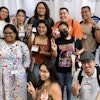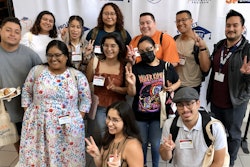Since its enactment in April, the Arizona law that gives local and state police the ability to arrest and detain people they suspect to be undocumented immigrants has spurred a whirlwind of discussion and activism concerning immigration policy and race relations.
With the specter of racial profiling and civil rights violations looming, a coalition of civil rights groups and activists around the country has condemned the law (SB 1070). The National Association for Chicana and Chicano Studies (NACCS) and the Hispanic Association of Colleges and Universities (HACU) are among groups that have called for an economic boycott of Arizona.
Diverse interviewed three prominent Mexican-American academics about the law, its impact on Arizona colleges, and what they hope to see in real immigration reform moving forward.
Dr. Roberto Rodriguez is an assistant professor in the Department of Mexican American and Raza Studies at the University of Arizona. In his nationally syndicated “Column of the Americas,” he compared Arizona to the apartheid South Africa. Dr. Josephine Mendez-Negrete, an associate professor of bicultural-bilingual studies at the University of Texas at San Antonio, is the editor of the journal Chicana/Latina Studies. Dr. Devon Peña, the chair of NACCS and author of its statement against Senate Bill 1070, is a professor of anthropology and Chicano studies at the University of Washington.
DI: What do you think about the new immigration law passed in Arizona?
Rodriguez: I look back at the Japanese-Americans who were put into concentration camps during World War II. I think it is very similar. That is, we have an opportunity to take a moral stand to prevent something wrong from happening. Today, there’s a consensus among everybody in this country that what happened to the Japanese was wrong, but nobody stood up while it was happening. This is what’s happening here in Arizona. We can see a law that will legalize racial profiling.
Mendez-Negrete: It has taken us back to Jim Crow days. Except that this is targeting international citizens who have no choice but to migrate, in our global economy to make a living and to survive, to places such as ours that rely on the labor of people who can’t find work any place else. It’s not just the undocumented immigrants who are targeted. It’s also people who look like them and have indigenous connections to the Americas.














